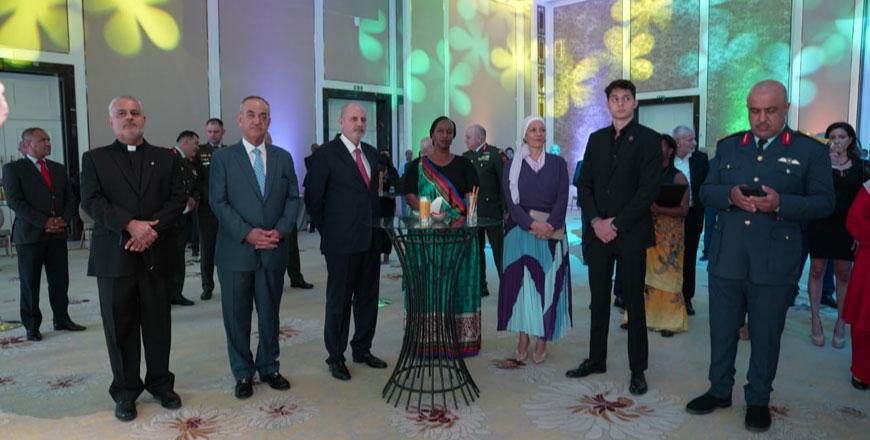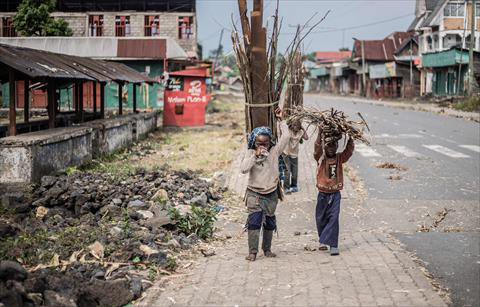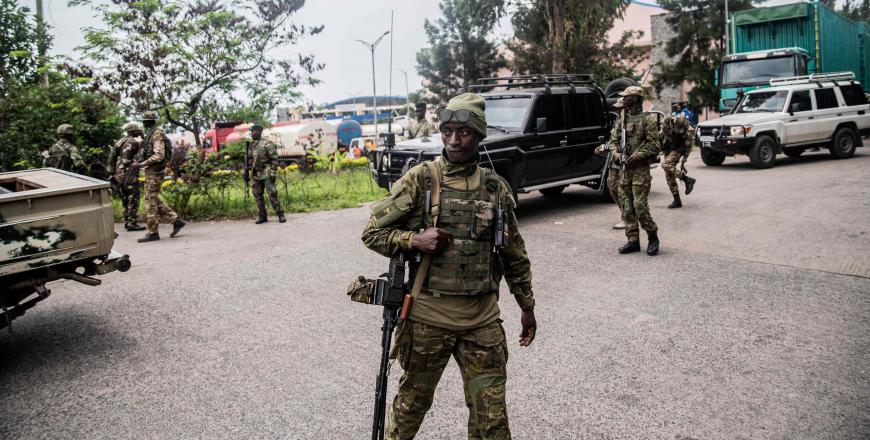You are here
Rwanda official on trial in Belgium over 1994 genocide
By AFP - Nov 04,2019 - Last updated at Nov 04,2019
BRUSSELS — A former senior Rwandan official went on trial in Belgium on Monday accused of taking part in the 1994 genocide in his country.
Friends and relatives of the alleged victims of 71-year-old Fabien Neretse were present as he arrived at the Brussels court, leaning on a crutch.
For the first time in a Belgian case, Neretse is explicitly charged with "genocide" over 13 alleged murders between April and July 1994.
He was arrested in France in 2011, but was not in detention and presented himself at court. He denies all charges.
"I'm innocent," he declared to journalists outside the court.
Neretse did not immediately appear in the dock, as Monday's hearing focused on jury selection. The first full hearing is to take place on Thursday.
Neretse's lawyer, Jean-Pierre Jacques, predicted that the prosecution would find it "very hard to prove" his client had sought to target an entire ethnic group.
Under a 1993 law, Belgian courts enjoy universal jurisdiction to prosecute genocide, war crimes and crimes against humanity wherever they took place.
This is the fifth trial regarding the genocide in Rwanda to have taken place in Belgium, the African country's former colonial power.
Belgian citizen Claire Beckers was a shopkeeper in the Rwandan capital, married to a man from the Tutsi ethnic group, with whom she had an 18-year-old daughter.
All three were killed on April 9, 1994, three days after the assassination of president Juvenal Habyarimana and the start of mass killings of Tutsi by Hutu extremists.
Beckers's Belgian sister lodged a complaint, and Belgian prosecutors argue Neretse was a leader in her area who sent armed men to prevent Tutsi escaping the death squads.
Neretse is also charged with involvement in killings in the Gitaram and Ruhengeri districts, where the agricultural engineer had founded a school.
Beckers's sister Martine Beckers told AFP that the trial was the "end of a long battle", insisting it is "important to honour the victims".
According to UN figures, the Rwandan genocide cost the lives of 800,000 people, mainly from the Tutsi minority but also moderate Hutus.
Related Articles
AMMAN — Approximately 300 guests gathered on Thursday to commemorate the 30th Anniversary of Rwanda's Liberation Day, marking the first cele
BUKAVU, DR Congo — Eastern DR Congo appeared calm for a second day Monday, after regional powers appealed for a ceasefire amid fears the fig
KINSHASA — The Democratic Republic of Congo's army denied Sunday that 20 fighters linked to the Rwandan genocide had been captured on i














